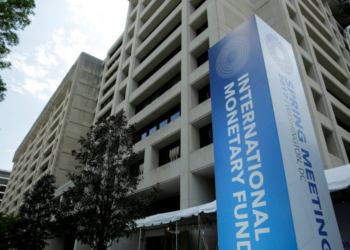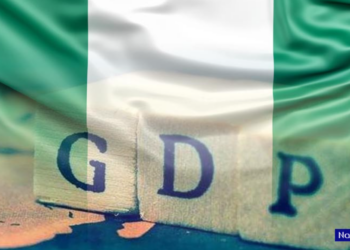The International Monetary Fund has predicted that Nigeria’s economy is expected to grow by 2.7% by 2022, stating that growth will remain at that level and also allow stabilization of GDP per capita.
The IMF disclosed this in its October Regional Economic Outlook for Sub-Saharan Africa: One planet, two worlds, three stories, published on Thursday.
They also noted that projected growth in non-resource-intensive African countries in 2022 had been eased by –1.0 percentage points to 5.4 percent, while for oil exporters, 2022 growth had been upgraded by 0.3 percentage points to 2.7 percent.
What the IMF said
The IMF said, “Nigeria’s economy will grow by 2.6 percent in 2021, driven by recovery in non-oil sectors and higher oil prices, even though oil production is expected to remain below pre-COVID-19 levels.
“Growth will inch up slightly to 2.7 percent in 2022 and remain at this level over the medium term, allowing GDP per capita to stabilize at current levels, notwithstanding long-standing structural problems and elevated uncertainties.”
For Africa, the IMF predicts, “a constrained recovery,” stating that a comparison with the experience of advanced economies may help shed further light on the challenges facing sub-Saharan African policymakers.
“Looking at the behavior of savings, the deployment of extensive fiscal measures in advanced economies allowed many households and firms to replenish or build up their savings, setting the stage for private demand to kickstart the projected recovery.
“In this context, the outlook for advanced economies envisions a smooth handoff from this extraordinary public support to private sector-led growth, adding that the speed with which this happens—as excess private savings are drawn down to fund consumption and investment—will determine the pace of the recovery, with a slower handoff implying a slower recovery,” the IMF stated.
They also urged that the ability of governments to support private savings during the crisis in sub-Saharan Africa was relatively limited, because of a lack of fiscal space, notably the inability to issue more debt.
“This, in turn, likely added to the collapse in aggregate demand. The handoff to the private sector is also likely to be constrained. In contrast to advanced economies, private consumption picks up more gradually in sub-Saharan Africa. With ongoing spending needs related to the pandemic, development, and the recovery, most governments will have difficulty in reducing their borrowing requirements—bringing them face-to-face with a fiscal trilemma,” it said.
The global bank warned that facing limits on most countries’ ability to run larger current account deficits—reflecting the traditional reluctance of foreign lenders to finance private investment—private-sector demand will be unable to support the recovery.
“These constraints should be very familiar. Without external financing, the public sector’s borrowing from domestic markets will tend to crowd out private investment and hinder growth. But again, the scale of the recent crisis has exacerbated the problem significantly in sub-Saharan Africa, adding to the challenges policymakers face as they try to steer their economies forward,” it said.
It urged that at least $2.5 billion would be needed to ensure that sub-Saharan African health systems could vaccinate the local population promptly as supplies started to increase, highlighting that many countries (Eswatini, Ghana, Kenya, Namibia, Rwanda) had to delay their vaccine campaigns while waiting for the arrival of new supplies.
“It is these shortages, rather than the ability to administer shots, that has so far been the biggest constraint throughout the region.
“Countries must also accelerate their acquisition of vital therapeutics, oxygen, and personal protective equipment. This will require urgent grant financing to pre-emptively procure and deliver a minimum package of critical supplies to countries at greatest risk,” it added.
What you should know
- Nairametrics reported that Nigeria’s Gross Domestic Product (GDP) grew by 5.01% (year-on-year) in real terms in the second quarter of 2021, marking three consecutive quarters of growth following the negative growth rates recorded in the second and third quarters of 2020.
- The non-oil sector grew by 6.74% in real terms while the oil sector declined by 12.65% year-on-year.
- The contribution of the non-oil sector grew from 90.75% recorded in the previous quarter to 92.58% in Q2 2021 while the oil sector contribution declined from 9.25% to 7.42%.
















